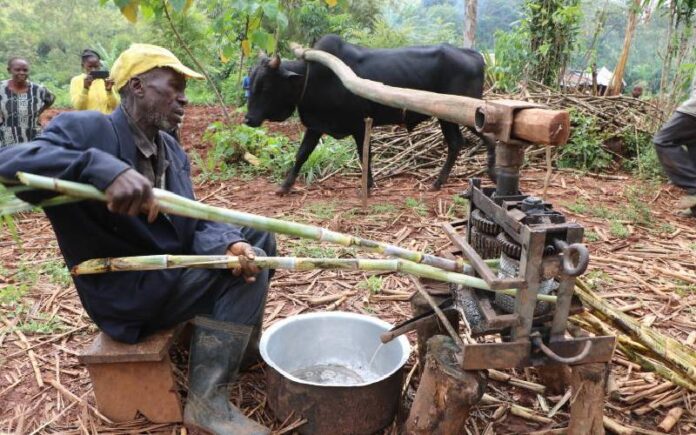In the quiet village of Imamune, located in Ikolomani sub-county, Kakamega County, Mathias Machika has become well known for his unique method of producing jaggery, a natural sweetener derived from sugarcane.
Machika turned to jaggery production over a decade ago after local sugar factories began to struggle. Like many farmers in the region, he had been growing sugarcane, but poor market conditions left him without buyers. Rather than watch his harvest go to waste, he took a different path—creating value directly from the cane.
Using a traditional, bull-powered system, Machika crushes sugarcane in a manually operated machine. A wooden plank is attached to a bull, which walks in a circular motion to rotate the crusher. The extracted juice is collected in a large sufuria and then boiled over firewood, which is made from dried cane waste. After about 30 minutes of boiling and 10 minutes of cooling, the concentrated juice solidifies into jaggery bars.
His method, though labor-intensive, has attracted customers from nearby villages due to the quality and natural taste of the jaggery. Many buyers also value it for its reported health benefits and use it as a natural alternative to processed sugar in drinks and traditional brews.
The business has been a source of livelihood not just for Machika but also for seven employees who assist in farming, juice extraction, and packaging. Despite challenges such as the rising cost of raw materials, Machika continues to produce jaggery consistently.
He has also diversified his income by renting out his manual crushing machine to others interested in producing jaggery, creating additional opportunities in the community.
Mathias Machika’s efforts highlight the potential of small-scale innovations in boosting local economies. Through hard work and resilience, he has turned a challenge into an opportunity, helping others while sustaining his own family.



